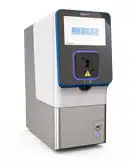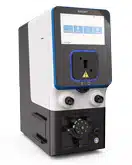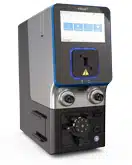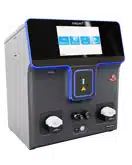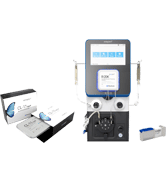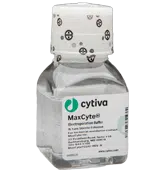Scientific Brief
Rapid Production of Assay Ready Cells for GPCR Drug Discovery
Abstract
G-protein coupled receptors (GPCRs) regulate various physiological processes. They are targeted by hundreds of existing drugs used to treat or moderate conditions as diverse as asthma, hypertension, diabetes and Alzheimer’s disease. GPCRs have also been implicated in multiple forms of cancer, including colon, pancreatic and appendix cancer, increasing interest in GPCR drug discovery. GPCRs are large, membrane-spanning cell surface receptors that are challenging to purify and crystallize, making cell lines overexpressing these proteins valuable tools for drug discovery. Developing stable cell lines expressing GPCRs can be particularly difficult. Once established, GPCR expression is prone to drift; some commercially available GPCR-expressing cell lines have very limited passage stability. An alternative is to use transiently transfected Assay Ready Cells, which can be prepared in less than an hour using MaxCyte® electroporation in physiologically relevant host cell types. Here we assess the response of HEK 293 cells transiently expressing the M1 muscarinic GPCR to carbachol, a GPCR activator that increases calcium flux. We present data demonstrating the ability to control the responsiveness of Assay Ready Cells transiently transfected with varying plasmid DNA concentrations, enabling researchers to fine tune the sensitivity of their GPCR assays.
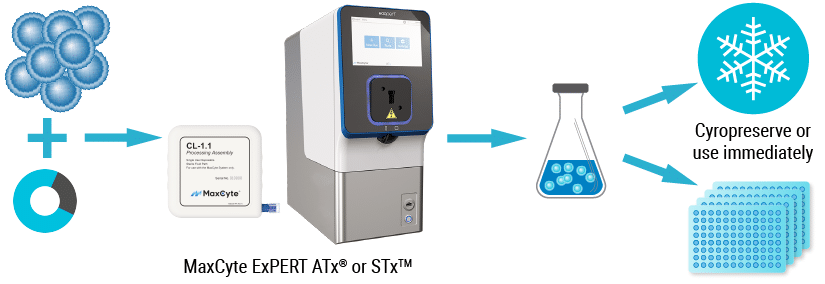
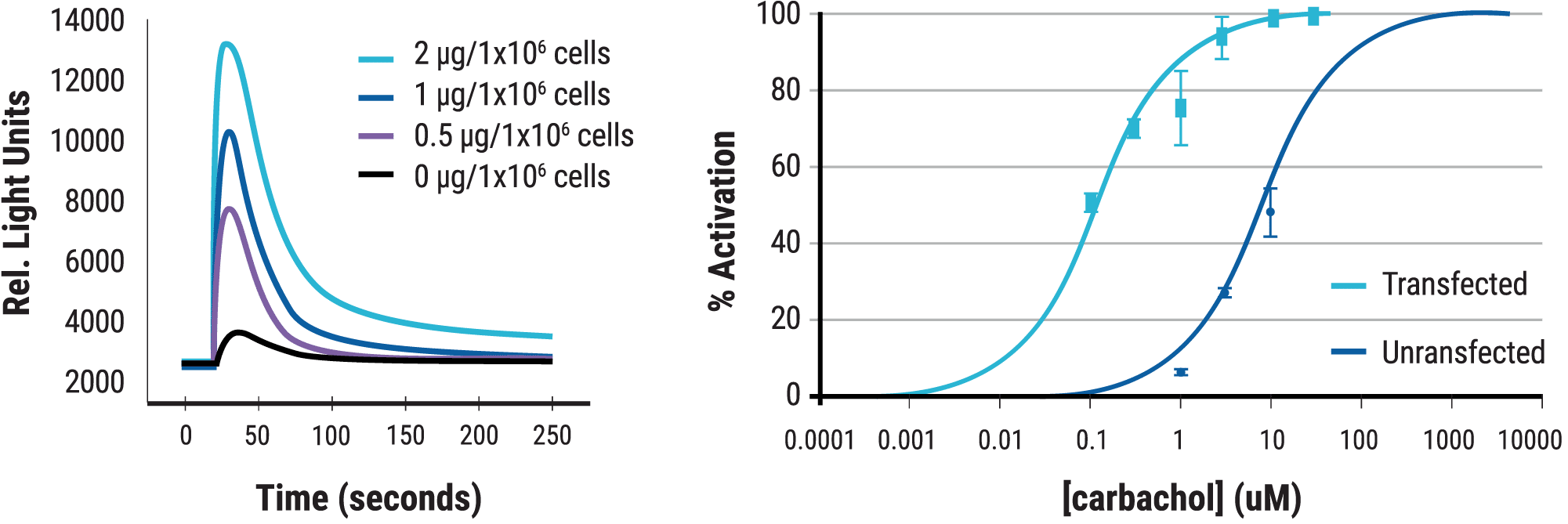
Preparation of Assay Ready Cells
- Resuspend cells in electroporation buffer and add DNA
- Transfer to Processing Assembly (PA)
- Connect PA to instrument
- Select protocol and tap “start”
- Rest cells
- Cryopreserve or assay
Visit www.maxcyte.com/assay-ready to learn more.
Carbachol-induced calcium mobilization in cells transiently expressing M1 muscarinic receptor.
A) HEK 293H cells, either untransfected or electroporated with increasing concentrations of M1 muscarinic receptor plasmid, were treated with 0.1 μM carbachol 24 hours post electroporation and FLIPR® assays were run with the Fluo-8 calcium assay kit. The magnitude of calcium flux was directly correlated with plasmid concentration. B) Transfected (2μg DNA/1x106 cells) and untransfected control cells were treated with increasing concentrations of carbachol and FLIPR® assays were run (n=8). Both transfected and control cells showed a dose-dependent response to carbachol activation. The EC50 value in transfected cells (0.12 μM) is considerably lower than in untransfected cells (7.6 μM), indicating a clear distinction between M1 muscarinic receptor activity and endogenous responses to carbachol.
Data courtesy of Chantest, now part of Charles River Laboratories.
Summary
- Develop GPCR assays in a day with proven performance in cAMP, FLIPR® and other high throughput assays
- Reduce reliance on stable cell lines by using transiently transfected Assay Ready Cells
- Fine tune assay sensitivity with varying DNA concentration
- Compatible with cell lines, primary cells and stem cells enabling the use of the most physiologically relevant context
- Superior performance with reduced day-to-day assay variability at any scale
- Accelerate drug discovery with Assay Ready Cells and MaxCyte® electroporation
- - transfect 75,000 to 700 million cells with the ExPERT ATx®
- - transfect up to 2x1010 cells in under 30 minutes with the ExPERT STx®
